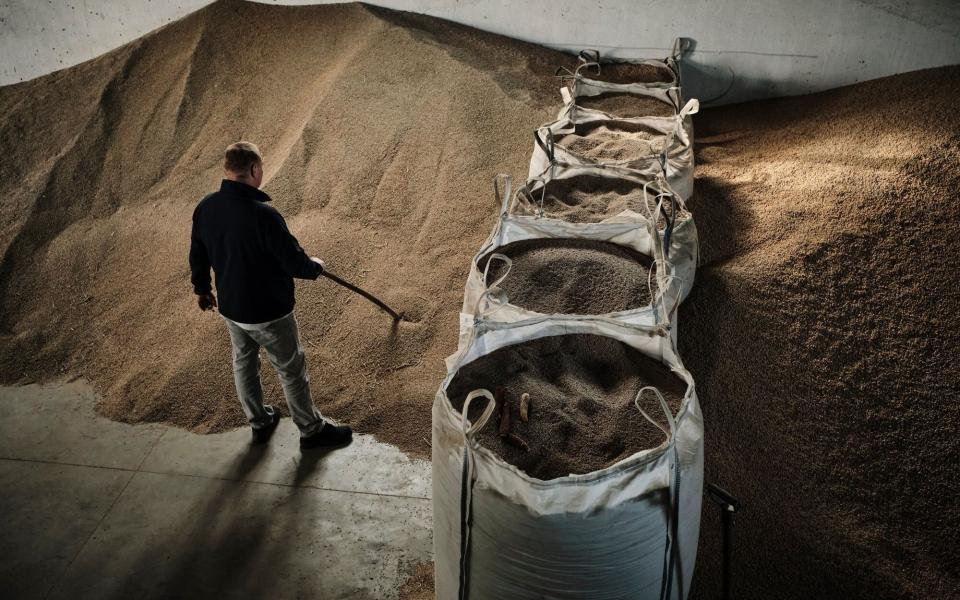Wheat prices jump as Russia targets Ukrainian grain supplies

Wheat prices have jumped after Russia targeted Ukrainian grain supplies, sparking new fears about the security of the world’s food supply.
Chicago wheat futures jumped by as much as 1pc to hit $5.89 per bushel on Wednesday after Russian attacks on port infrastructure in Odesa on Tuesday night. Wheat prices have now risen by nearly 3pc since close on Monday.
Odesa is critical to grain exports from Ukraine, which is the world’s fifth largest wheat exporter. Southern ports such as Odesa are essential because road, rail and canal routes through Poland and Romania can transport only small quantities of grain.
Regional Governor Oleh Kiper said on Telegram on Tuesday: “The invaders hit the port infrastructure of Odesa. People were not injured.”
Ukrainian wheat production has already dropped by 35pc since the full-scale war began in 2022 and the war has so far cost the country’s agricultural sector $40.2bn in damages and losses.
Wheat prices rocketed to a peak of $10.93 per bushel in May 2022 following the initial Russian invasion but have cooled since then. However, the latest attacks show that the risks to food supplies remain.
On Tuesday, the United Nations World Food Programme warned that sustained Russian attacks could do lasting damage to Ukraine’s agricultural industry and impact broader global food security.
Matthew Hollingworth, the UN World Food Programme (WFP)’s Ukraine country director, said: “If attacks on such food infrastructure and the blockage of sea export routes continue, it will dramatically impact the agricultural production outlook over years to come, and may, in the worst-case scenario, lead to wheat production being unable to meet domestic and export demand.”
In July, Russia pulled out of the Black Sea grain initiative, a deal that ensured Ukrainian grain could be exported from its southern ports via the Bosphorus and allowed a total of 33m tonnes of grain to leave Ukraine over the year it was in place.
Since quitting the deal, the Russian defence ministry has said it considers all cargo ships travelling to Ukraine via the Black Sea as potential military targets.
Russian strikes have destroyed 280,000 tons of grain in one month alone, enough to feed more than a million people for a year, according to the UN.

 Yahoo Finance
Yahoo Finance 